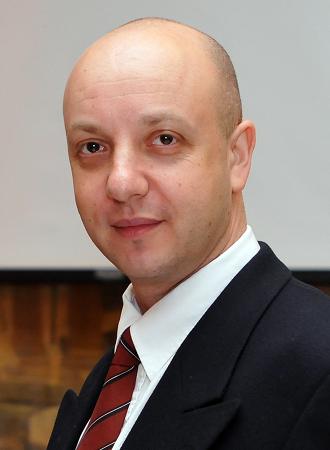The agreement is based on the expertise and groundbreaking results in the research being carried out in the laboratory of Dr. Simon Barak at the Yaakov Blaustein Institute for Desert Research (BIDR) of the university

Ben-Gurion University of the Negev has announced a research collaboration agreement with Bayer BioScience NV, a subsidiary of Bayer CropScience, which operates in Magnet, Belgium, to develop solutions to the enormous damage caused to agriculture around the world due to extreme climate change, limited water availability and other phenomena.
The agreement is based on the expertise and groundbreaking results in the research carried out in the laboratory of Dr. Simon Barak
(pictured) at the Yaakov Blaustein Desert Research Institute (BIDR) of the university.
Dr. Barak and his team use a combination of Approaches to identify genes that allow plants to withstand harsh environmental conditions that characterize the arid regions. Two of these genes were thoroughly studied and the researchers found that the removal of one of the two genes increases the resistance of the model plant, Arabidopsis, to heat, salinity and drought. This research was recently published in Plant Physiology, a leading international journal.
The agreement signed between B. third. Negev Technologies - the technology commercialization company of Ben-Gurion University of the Negev and Bayer CropScience, will enable the identification of additional genes that have an effect on making plants more "resistant to pests". Dr. Barak, a member of the Institute for Agriculture and Biotechnology of Arid Zones for the University of France in BIDR, indicated that the new collaboration will allow his team to continue testing about 30,000 genes of Arabidopsis, in order to identify additional genes for resistance to blight.
B. third. Negev Technologies is a technology commercialization company of Ben-Gurion University of the Negev, and is responsible for commercializing the knowledge and inventions of the university's researchers. through the development of innovative technologies at the university and creative partnerships with industry and investors b. third. Negev Technologies brings value to the technology market.
Bayer BioScience, one of the three business groups of Bayer CropScience AG, plays a prominent international role in the development and commercialization of agricultural crop seeds and traits. The company uses plant biotechnology and sophisticated techniques to develop varieties adapted to the demands of tomorrow's agriculture. BioScience employs more than 2100 people worldwide and is headquartered in Lyon, France.
About Bayer CropScience
Bayer is a global corporation specializing in the fields of health, nutrition and hi-tech. Bayer CropScience AG, a subsidiary of Bayer AG with annual sales of approximately 6.4 billion euros (2008), is one of the world's leading companies for innovative research in agricultural crop science in the fields of plant protection, non-agricultural pest control, seeds and plant biotechnology. The company has an exceptional supply of products and a comprehensive service backup for modern, sustainable agriculture, and non-agricultural uses, including in the high-tech fields.. Bayer CropScience has a global workforce of more than 18,000 and the company has representations in more than 120 countries.

3 תגובות
The university also receives a percentage of the sales, a portion goes to the researcher and especially to his laboratory for further research.
The Weizmann Institute receives capital for sales of drugs created as a result of research at the institute. In this way it is possible to continue researching, perhaps even to bring back Israeli researchers from abroad, and help the country in many different ways.
First, congratulations to the researcher for his achievements. More the better. I hope that the fruits of the research will be used for many good years of fruitful research and successful students.
refresh,
I am not sure that research budgets are taken from government budgets. Each researcher works very hard in order to obtain research budgets and convince these or other funders to agree to support his research, while trying to convince them that the fruits of his research are important to science and humanity. The very act of finding the trick and giving it to the world (distributed through a details company, in this case) is the return of the investment and much more than that. The fruits of this research will feed many mouths and the main and real beneficiary is man.
In Israel there is academic freedom, this means that in principle scientists can do a great many things and ask for funds for almost anything. I can only assume that for the most part there is no visible economic meaning in most cases. In the case where there is such a meaning, one must see how to derive the best benefit for the purposes of continued research and proper compensation of those concerned. I believe that smart bodies like the university know how to put their economic thought against the economic achievement and thus serve their own interests.
Greetings friends,
Ami Bachar
B. third. Negev Technologies is a technology commercialization company. It takes knowledge obtained by the Israeli government's budget, and gives it to an Israeli or foreign capitalist, who will make money on it. This knowledge should remain a public asset, and that the public should make money on it, and not some capitalist.